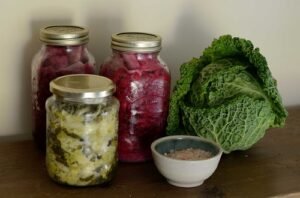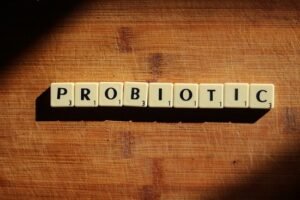Mud baths are thick, black and… well, muddy! This much I knew before I climbed into one, but there is certainly much more to them than that. In this post I share my fertility mud bath experience.
Mud baths have been used here in the Bavarian Alps to treat infertility for over 150 years. Recently, scientific studies conducted by Dr. med. André-Michael Beer have backed up this claim by showing that the peat here contains substances that impact the regulation of hormones – in addition to stimulating circulation and activating metabolism.
After learning about the power of these mud baths my husband and I headed there for a two week vacation at the beginning of this year.
We signed up for the ‘Peat Baby’ program, and I came home pregnant! The pregnancy turned out to be ectopic, but it was the first time I had ever been pregnant. It was possible.
What isn’t possible though, is to say if the pregnancy was due solely, in-part or not at all to the mud baths since it was only one of the many things I was doing to boost my fertility. A positive pregnancy test was reason enough to try again though.
So, last Friday I began another fertility mud bath treatment session. I’ll be going every other day (excluding weekends) for a total of five mud baths.
What is a Fertility Mud Bath Like?
 When I arrive in the little room a woman helps me take off my robe and I step into the black concoction. I’m told to step into the far end of the tub and then sit down.
When I arrive in the little room a woman helps me take off my robe and I step into the black concoction. I’m told to step into the far end of the tub and then sit down.
Getting into mud this thick really does require instructions. Once my feet are in I sit down on the mud (stress ‘on’), lean back and wiggle until I am submerged up to my neck.
Copper Coil
As I’m making the final adjustments to my position the lady begins to spread the mud over my body so that everything is evenly covered – except for the area over my heart. This area she wipes clear and places a cold copper coil. Very cold.
When I ask her what this is for she says simply to relieve the strain on the heart. ‘Strain on my heart?’ Before my look of confusion fades the lady has left the room.
Now, I get to sit in here for the next 15 minutes and enjoy the warm mud- 102.2 degrees warm to be exact. Each time I’ve taken the mud bath, my body has reacted differently. Sometimes, I feel like the bath is nice and warm and sometimes I think I may explode from the heat as the sweat pores down my forehead.
Yesterday was the later. At this point, I’ve submerged my hands and arms in the mud as well and I can’t resist squishing the peat through my fingers. It’s not the smooth pureed mixture I expected. In fact, I can feel little sticks and clumps that are fun to break apart. This distracts me quite well from the heat because before long the lady is back and says I can get out.
As she helps me get out and shower off, the two little glass doors open up and a strong arm reaches in to pull the tub out. I hear a cheerful “good morning” and the tub disappears.
Where Does the Mud Go?
It turns out that the mud is one use only. Every other morning a truckload is ‘harvested’ and brought to the different spa hotels in town. After its one use, the mud is recycled. Recycled?
I asked how long it takes to recycle peat, and I’m told so long that they haven’t even used any recycled mud yet. For some reason this makes me feel better – like I’m sitting in the original fully potent stuff.
That Mud Bath Feeling
After I’m bundled back in my robe, I head to the quite relaxation room where I’m wrapped in two blankets with my feet elevated. This is the best part. I fully relax. I’m tired and calm. And a perfect warmth has engulfed my body.
They say mud baths can be exhausting. It’s true. I’m pretty tired. I’ve been going to bed early and have even taken one nap since I started the treatments. I have three more to go, let’s see what happens.
If you enjoyed reading my blog, please write a comment here or bookmark it to a social bookmarking site by using the link below.
Thanks!



 I found a support group near me, and after filing the info away for several months, I finally did it: I called. I showed up and became one of ‘those’ people – whatever that means.
I found a support group near me, and after filing the info away for several months, I finally did it: I called. I showed up and became one of ‘those’ people – whatever that means.
 Decreased fertility
Decreased fertility
 Sifting through books and articles on fertility and health I’ve come across various studies on the effects of animal and vegetable protein on fertility. There is, however, no consensus on which source is best for improving your changes of conception. What doctors and researchers do agree on, though, is that insulin regulation is vital to fertility.
Sifting through books and articles on fertility and health I’ve come across various studies on the effects of animal and vegetable protein on fertility. There is, however, no consensus on which source is best for improving your changes of conception. What doctors and researchers do agree on, though, is that insulin regulation is vital to fertility.
 Probiotic bacteria are the friendly bacteria that live in our digestive systems. They are vital to our health and well being and are responsible for breaking down our food, manufacturing many vitamins like the B-complex vitamins and producing antibiotics that prevent colonization of the harmful bacteria.
Probiotic bacteria are the friendly bacteria that live in our digestive systems. They are vital to our health and well being and are responsible for breaking down our food, manufacturing many vitamins like the B-complex vitamins and producing antibiotics that prevent colonization of the harmful bacteria.
 It’s not a surprise that these little inhibitors are so important to us given the slew of responsibilities they have. Just to name a few of these responsibilities of probiotic bacteria:
It’s not a surprise that these little inhibitors are so important to us given the slew of responsibilities they have. Just to name a few of these responsibilities of probiotic bacteria:
 Zita West (a midwife, nutritionist, and acupuncturist specializing in fertility) in her book,
Zita West (a midwife, nutritionist, and acupuncturist specializing in fertility) in her book,